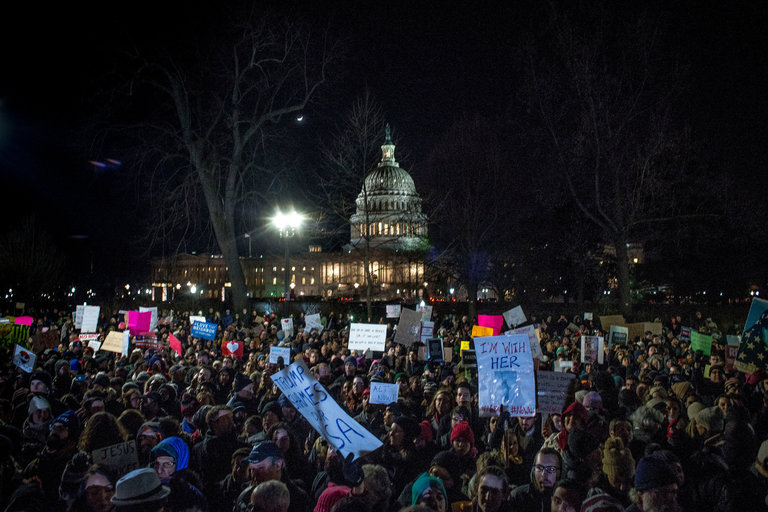Supreme People’s Court judge critiques Trump
Top politics and current affairs news for February 7, 2017. Part of the daily The China Project news roundup "New Beijing mayor ‘vows to banish parts of the city to the provinces.’"

-
Donald Trump’s tweets about a judge find a critic in an unlikely place: China / NYT (paywall)
Judge He Fan of the Supreme People’s Court of China, a close watcher of U.S. judicial developments, published a blog post (in Chinese) slamming Donald Trump as “no different than a villain” for attacking a federal judge who blocked key parts of the administration’s recent travel ban. Though China has no judicial independence — all rulings are ultimately subject to the Communist Party’s approval, and the Party is not keen to give up that power — many reform-minded lawyers in China watch or even admire the American legal system. A couple of years ago, for example, it was reported that “tens of thousands” of Chinese justices and lawyers read a translation of the year-end report by Chief Justice John Roberts of the U.S. Supreme Court. -
Opinion: Isolating China doesn’t work / NYT (paywall)
John Pomfret draws on his extensive research into the history of U.S.-China relations to highlight parallels between Trump in America today and Mao Zedong in China in the past. The anti-immigration tendencies of the United States a century ago, expressed most vividly through the 61 years that America barred Chinese immigration, “persuaded the Chinese to favor Communism over capitalism,” while Trump’s “America First” rhetoric resembles the famed “Chinese people have stood up” speech of Mao Zedong in 1949. He concludes that if the Trump administration insists on a policy of othering and isolating China, it will “push China into a defensive crouch, validate its paranoia and allow it to nurture its anti-American fears,” potentially aiding in the resurgence of a Chinese nationalism very similar to what China had under Mao.
- Task force urges better U.S. engagement with China – from the Asia Society’s Center on U.S.-China Relations / NYT (paywall)
- China courts Ivanka, Jared Kushner to smooth ties with Trump – read more about Chinese reactions to Ivanka here / Bloomberg
- Chinese ships sail near disputed Japanese islands – a response to U.S. affirmation of Japan’s position / CNN
- Vatican debated whether to invite China to organ meeting – see news yesterday / Washington Post
- Opinion: When did some students in Beijing start being indicators of political sentiment in China? / Politics from the Provinces
- Opinion: China will miss the TPP / Foreign Affairs (paywall)






